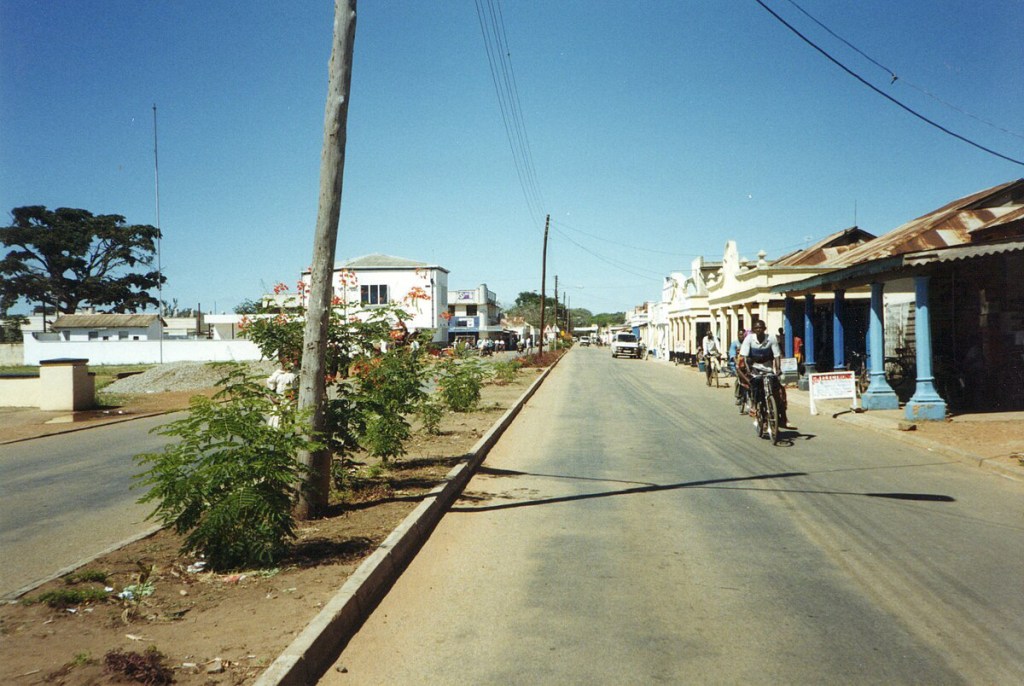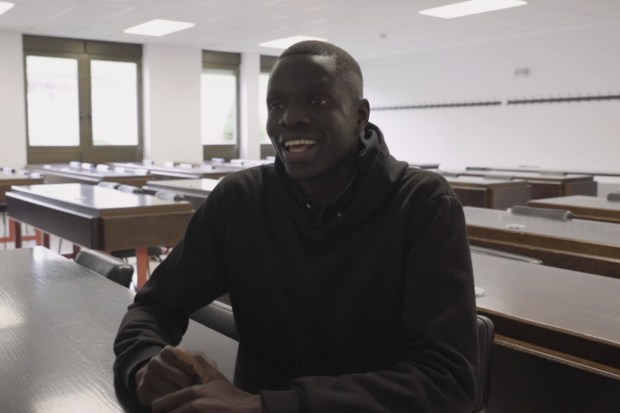Uganda is one of those countries where it’s common to be born into a large family. This is the case of Gerald Emanuel Ongodia, a seminarian from the Diocese of Soroti. He has 10 siblings — three brothers and seven sisters — two of whom have already gone to be with the Lord.
He shares with us how his vocation to the priesthood was shaped by the faith and community values of his homeland. In his testimony, he highlights the importance of solid spiritual formation, close leadership, and the use of technologies to transform lives.
The story of his vocation
The idea of ending her pregnancy crossed Gerald's mother's mind in a moment of despair.
“Thank God the pregnancy continued and I’m here today, with a vocation to the priesthood,” Gerald says joyfully. He’s also grateful for the determination of his father, a catechist, and believes that his vocation has its roots in these two circumstances of his life.
His family works in the fields and lives by agriculture. Due to the economic difficulties they went through, his parents taught them to always keep fighting to move forward, working and leaving everything in the hands of the Lord, as well as knowing how to share whatever they have, be it much or little.
Gerald entered the minor seminary of his diocese of Soroti, in Uganda, at the age of 14. Now at 28, his bishop has sent him to study at the Ecclesiastical Faculties of the University of Navarra, in Pamplona. There, he’s studying his final year of Theology
“My parents are very happy with my vocation, and they’re praying hard for me so that the Lord, who called me, will help me to be a good and faithful priest,” he says with emotion.
Religious challenges in Uganda

Uganda enjoys religious freedom, although, as in many other places, there are tensions and competitions between the different religious denominations.
A different problem is the proliferation of certain religious sects. Gerald says that “although Catholicism is predominant, some Protestant groups and non-Catholic religious movements have gained ground in many parts of Uganda. The sects that tend to attract people often present themselves as more dynamic, focused on material well-being and prosperity, offering healing services and certain miracles.”
These are some of the religious challenges facing his country, in particular his diocese, Soroti. It’s located in north-eastern Uganda, a region where religious life plays a fundamental role.
The Church's social and educational support
“[The region covered by] my diocese is mainly Catholic, and as in many other regions of Uganda, faith plays a key role in people's daily lives. Religious life is strongly influenced by African traditions and liturgical celebrations such as baptisms, weddings, and funerals,” Gerald explains.
Most of the Catholics in Soroti live in rural communities where the Catholic church isn’t only a place of worship but also a community center providing social, educational, and spiritual support.
Parishes organize numerous activities, offering not only spiritual formation but also programs to help the most needy.
Improving education and healthcare
Another of the sources of joy for his diocese is the large number of young people who participate in parish activities.
“However, my diocese needs more tools to improve education, both secular and religious. The diocese offers educational programs, but often faces limitations in terms of resources,” he laments.
Access to healthcare is also a challenge, especially in rural areas. To help improve healthcare, many Catholics are involved in community health projects. His diocese is also working to improve economic conditions, providing skills training and supporting agricultural development projects. But above all they dream of building a great cathedral, a project that’s already well advanced.
The four characteristics in the spiritual formation of a 21st-century priest
Soroti also needs well-trained priests capable of being religious leaders in rural communities.
In this sense, Gerald clearly states that, in countries like Uganda, young 21st-century priests face unique challenges, “but they also have special opportunities to become charismatic leaders who are close to the people.”
Full of enthusiasm and eager to put all the training he has received into practice when he returns to his country, he lists the four characteristics that a young priest today should have:
1. Solid spiritual training: to know both theology and the social and cultural situation of his community
2. Empathy and closeness: to be a spiritual guide and a support, especially for the most vulnerable
3. Technological mastery: to use digital tools to evangelize and connect with the faithful
4. Social commitment: to promote justice and well-being in their communities

Learning from the example of Africa
To conclude this testimony that he shares with us thanks to the CARF Foundation, Gerald Emanuel Ongodia shares what can be learned from Africa:
Europe can learn a lot from Africa, and particularly from Uganda, to be more vibrant in religious community life. In many parts of Africa, community life is deeply meaningful. African communities tend to be very close-knit and have a strong network of mutual support.
Despite enormous socio-economic challenges, people in Uganda and much of Africa show remarkable resilience. Hope and faith play a crucial role, and even though people live in difficult conditions, they maintain a strong sense of community and faith.
The rest of the world can learn from Uganda's lively spirituality and religiosity. For this young Ugandan seminarian, liturgical celebrations, songs, and dances are authentic expressions of faith that Christians all over the world could rediscover to strengthen their connection with God.
And finally, he emphasizes the interconnection between faith and daily life. “In many parts of Africa, faith is not something separate from daily life; it is rooted in all our daily actions,” he says.










